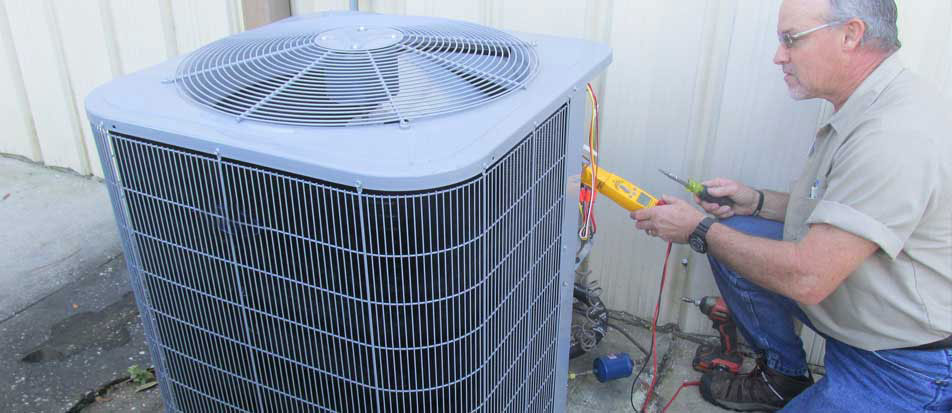The last thing you want to happen on a sweltering summer afternoon in Florida is for your air conditioner to quit working. Regular maintenance of your cooling system can prevent the vast majority of issues from striking, but occasionally, problems arise even despite your best attempts. Complications can occur for a plethora of reasons, from clogged air filters to the positioning of plants and other debris hindering your air conditioner from working efficiently. Faulty installation, even if you were unaware of the shoddy work at the time, is another common culprit that can contribute to your air conditioner malfunctioning. The average lifespan of an air conditioning and HVAC unit is 15 years, so if yours hasn’t reached this point, there’s a pretty good chance it’s repairable. Albeit there are certain problems that will need to be remedied by a licensed professional, many nuisances are an affordable and easy fix. Next time you find yourself struggling to figure out what’s causing your air conditioner to fail, consider these common problems and their solutions:
Your air filter is clogged.
A dirty air filter restricts the airflow through your home and decreases the effectiveness of your central AC unit. In order for your air conditioner to perform at its full capacity, you should aim to swap your air filter out on a monthly basis.
You notice that the air conditioner is running but not cooling the home.
If your air conditioner is on and running, but does not seem to be adequately cooling, attempt to set the thermostat to a lower setting (by at least 5 degrees). You can also clean the condenser coil and fins, and if necessary, straighten the fins. This can also be caused by the obstruction of air vents. Outdoor furniture, plants, and/or other type of debris placed in front of the unit can significantly hinder the airflow. Indoors, make sure that lamps, TVs, and other electronics are positioned away from the thermostat, as these give off significant amounts of heat and cause your air conditioner to run longer than needed.
You hear abnormal noises coming from the air conditioner.
Smacking noises can mean that something is stuck in the blower blades, an inconvenience typically caused by debris. You should turn off the AC unit and thoroughly inspect the blades, removing any foreign objects. A screeching noise usually indicates a problem with the motor or blower assembly, and can often be fixed by adding lubricant to the oil port.
You’ve failed to regularly maintain your AC system.
The importance of regular upkeep cannot be stressed enough. Equally crucial is that you hire a qualified technician to fully examine and perform maintenance on the unit. If it’s been over a year since you last got your air conditioner checked out, it’s highly advisable to make an appointment in the near future.
At what point should you throw in the towel and let the experts handle the work? The following problems should be examined and repaired by a certified professional:
Your refrigerant is running low.
Diminished levels of refrigerant, the chemical that cools the air within the system, can indicate that there’s a leak or other problem with the unit. Simply adding refrigerant is not a viable solution; a technician will need to be called to come fix the problem.
The wiring is faulty.
Whether you opted to install your air conditioner yourself or it was the work of an uncertified technician, careless wiring can cause an array of problems. It’s advisable to schedule an appointment with a certified HVAC specialist as soon as possible.
Your air conditioner has stopped working completely.
Before you run to the phone to summon the nearest technician out to your home, check the thermostat’s batteries. If they are dead, replace them. If not, ensure that the thermostat is set to ‘Cool’ mode and at your desired temperature. Next, check for blown fuses or tripped circuit breakers and restore the circuit if this is the issue. If all else fails, it’s time to call the experts.

Pat Ambrose has over 40 years of experience in the HVAC industry, serving Central Florida. He tested for and received his class B air conditioning license almost 35 years ago and then improved that to a class A license in the late 90s. Pat and his wife started their own HVAC business in the early 90s, serving Central Florida. Pat still serves as the president of Ambrose Air, Inc., where he works as the chief operating officer. Over his years in business, Pat has served as the president of both the local association (ACCA/CF) and the state association of contractors (FRACCA). His expertise has helped his customers on many occasions, solving air conditioning problems that others had missed.


